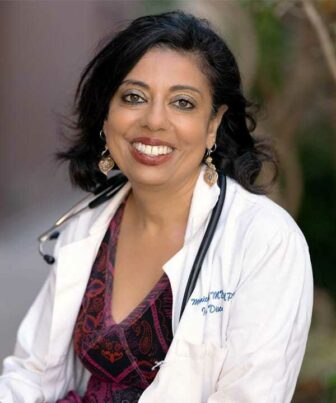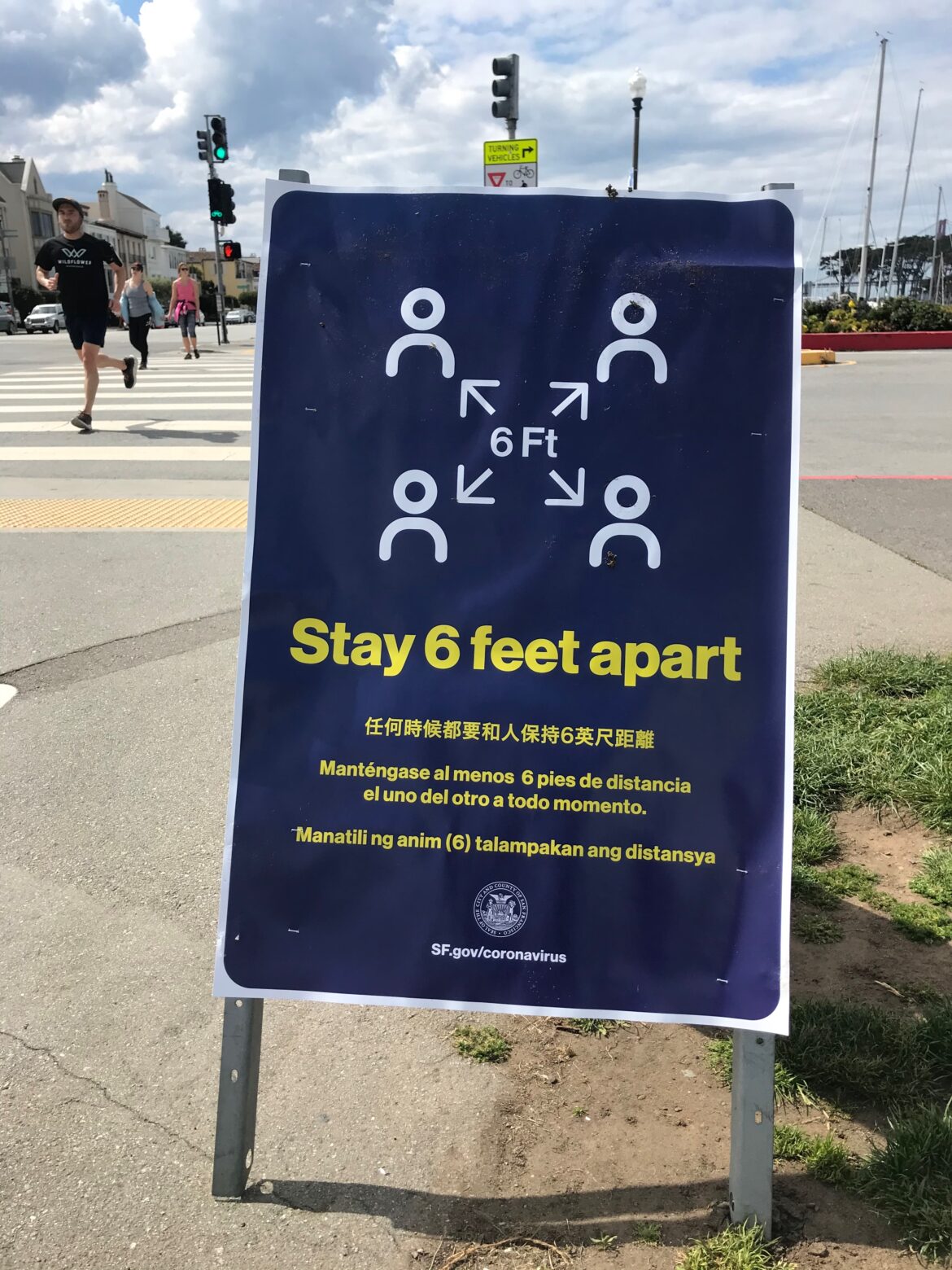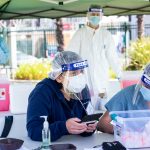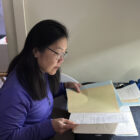On March 17, 2020, San Francisco and most Bay Area counties issued the first “stay at home” orders in the country to try to slow the spread of COVID-19.
Four years out, this seems like a good time to look back and reflect on those days. I’ve been working on a “Civic” episode to examine what we’ve learned so far about the COVID pandemic, what we could have done better back in 2020, and what we failed to learn from earlier pandemics, such as HIV/AIDS. That work will be published this spring as part of our current season of “Civic” podcasts.
As we near the lockdown anniversary, I want to share part of an interview I did with Dr. Monica Gandhi, author of “Endemic: A Post Pandemic Playbook.” She is a professor of medicine and associate division chief of HIV, infectious diseases, and global medicine at UCSF and Zuckerberg San Francisco General Hospital. She also serves as the medical director of the HIV Clinic at San Francisco General Hospital’s Ward 86.
Mel Baker: Can you think back to those first few days when the news was coming out of Wuhan and this looked like it might be a pandemic?

Courtesy of Dr. Monica Gandhi
Dr. Monica GandhiDr. Monica Gandhi: So, all of the division of infectious disease and the entire Department of Medicine here at San Francisco General were crowded into our auditorium, terrified and listening to updates from Wuhan, China. We met again when we thought that there was the first case of community transmission in San Francisco. It was two days later that the shelter in place orders came down from the San Francisco Health Department because there was community transmission.
I remember feeling faint. I didn’t think I’d see a pandemic like this in our lifetime. I was so much more familiar with HIV, but this was so unknown. Watching anything from New York was so hard and so sad. So, yeah, it was a feeling of incredible shock. And I just felt dizzy really all the time.
Baker: It must have been like, you’ve trained all your life for this moment — and here it is. One of the astonishing things you say in your book is that the numbers initially coming out of Wuhan were between 1 and 10% fatality. I remember reading a story claiming 5% mortality and sharing it in a San Francisco Public Press staff meeting — we were all on Zoom of course — and I said, “5% — you realize what that means? I mean, that’s like civilization-destroying!” If it had been 10%, the potential would have been full societal collapse.
Gandhi: You’re right. Anything with some mortality rate like 10% would be incredibly devastating and would resemble what happened in 1918 with the influenza pandemic.
(Reporter’s note: Recent estimates for the 1918 influenza pandemic range from 50 to 100 million deaths worldwide, when the global population was about 1.8 billion people.)
I was interested in writing this book, in a way, because I want us to have more trust in public health. A lot of this book is about increasing trust. God forbid we get another pandemic that is spread through droplets and respiratory secretions. If it has a very high mortality rate like Ebola does, we would literally have to go crazy [with public health measures.]
(Reporter’s note: The World Health Organization cites Ebola death rates of up to 90% without treatment.)
Part of the reason I waited to publish this book until COVID was declared, quote “over” — and it’s never over, but over in the pandemic sense — was to say, okay, these were the mistakes made. These were the ways that we did good things, like really fast technological advances, biomedical advances, vaccines, therapeutics. Let’s put it all together, and let’s build up our trust. Because we have no idea what the next pandemic will be.
Baker: There are plenty of viruses on the horizon that could potentially become pandemics. Are you hopeful that our ever expanding toolbox of vaccines and drugs will be enough for us to manage the next one?
Gandhi: I’m profoundly hopeful about vaccines. So, I’m really hopeful how fast the vaccine got developed. I was floored. You know how I said I was feeling faint and dizzy at the beginning of the pandemic? It was around Nov. 4, 2020, when the first positive results came back, and I was elated. That day was like my birthday. I remember just feeling like wait, it took this long? This is not that long!
So, I’m very hopeful about our technology, about how we can produce really effective vaccines and treatments quickly and well. That’s why I really do want people to start trusting doctors and public health people more, even though everyone’s tired of the pandemic right now.










